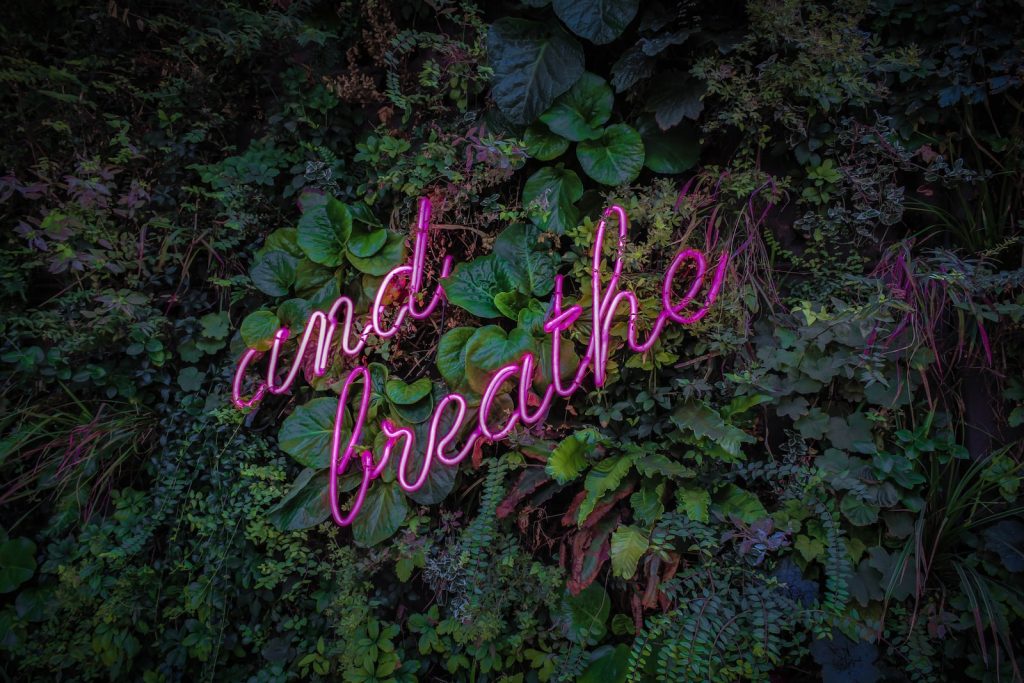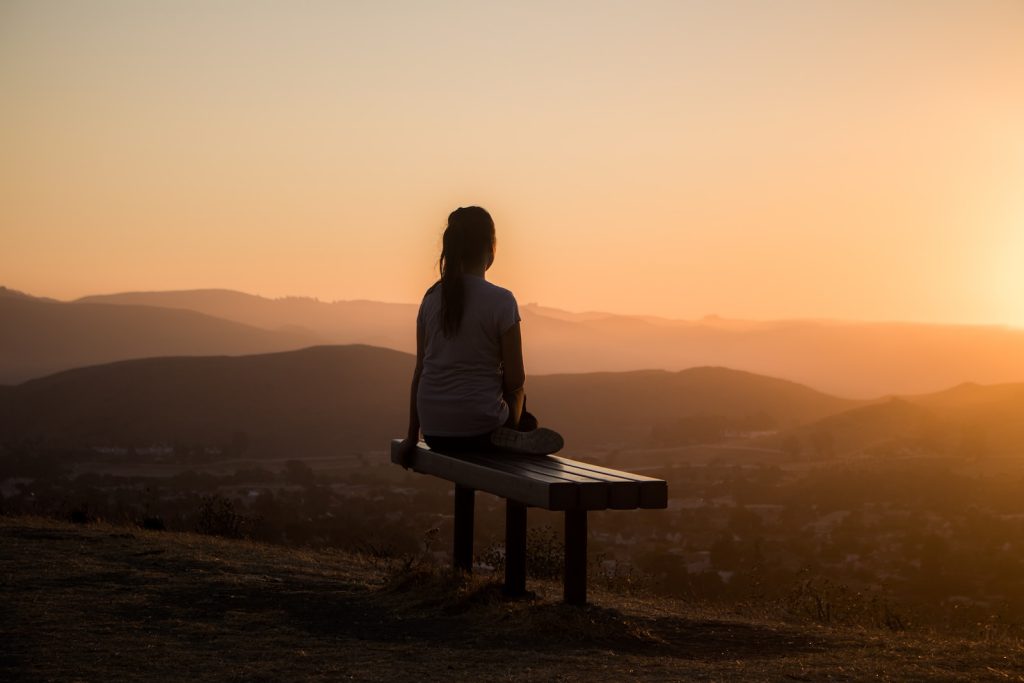Anxiety is a common mental health condition that affects millions of people worldwide, and women are more likely to experience anxiety than men. While there are many different treatments available for anxiety, meditation is a popular and effective option for many women. Meditation can help to calm the mind, reduce stress, and improve overall well-being.

When it comes to finding the best meditations for female anxiety, there are many different options to choose from. Mindfulness meditation is one of the most popular types of meditation for anxiety, as it involves focusing on the present moment and accepting thoughts and feelings without judgment. Other types of meditation that may be helpful for anxiety include loving-kindness meditation, which involves cultivating feelings of compassion and kindness towards oneself and others, and body scan meditation, which involves focusing on different parts of the body to promote relaxation.
It’s important to note that while meditation can be a helpful tool for managing anxiety, it’s not a substitute for professional treatment. Women who are experiencing severe or persistent anxiety should seek help from a mental health professional. With that said, incorporating meditation into a comprehensive treatment plan can be a powerful way to manage anxiety and improve overall well-being.
Understanding Anxiety in Women

Anxiety is a common mental health condition that affects both men and women. However, research has shown that women are more likely to experience anxiety than men. This section will explore some of the reasons why anxiety is more prevalent in women.
Hormonal Influences
Hormonal changes that women experience throughout their lives can have a significant impact on their mental health. For example, during puberty, menstruation, pregnancy, and menopause, women experience fluctuations in estrogen and progesterone levels, which can trigger anxiety symptoms.
During the menstrual cycle, women may experience premenstrual syndrome (PMS), which can cause symptoms such as irritability, mood swings, and anxiety. Similarly, during pregnancy and postpartum, women may experience anxiety due to hormonal changes and the stress of caring for a newborn.
Social and Cultural Factors
Social and cultural factors can also contribute to anxiety in women. Women are often expected to fulfill multiple roles, such as caregiver, partner, and employee, which can be stressful and overwhelming. Additionally, women may face discrimination, harassment, and other forms of gender-based violence, which can contribute to anxiety.
Cultural expectations can also play a role in anxiety. For example, women may feel pressure to conform to societal beauty standards, which can lead to body image issues and anxiety. Additionally, cultural norms may discourage women from seeking help for mental health issues, which can prevent them from receiving the support they need.
Overall, anxiety is a complex condition that can be caused by a variety of factors. By understanding the unique challenges that women face, we can better support them in managing their anxiety symptoms.
Benefits of Meditation for Anxiety
Meditation has been used for centuries as a way to reduce stress and anxiety. It has become increasingly popular in recent years, and for good reason. There are many benefits to practicing meditation, including:
Reduces Stress Hormones
When we experience anxiety, our body releases stress hormones such as cortisol and adrenaline. These hormones can cause physical symptoms such as increased heart rate and breathing, as well as feelings of tension and anxiety. Regular meditation practice has been shown to reduce the levels of these stress hormones in the body, leading to a decrease in anxiety symptoms.
Improves Emotional Regulation
Another benefit of meditation for anxiety is that it can improve emotional regulation. Anxiety can cause intense feelings of fear, worry, and panic. Meditation can help individuals learn to observe these emotions without getting caught up in them. By practicing mindfulness, individuals can learn to regulate their emotions and respond to stressful situations in a more calm and rational manner.
Overall, meditation is a powerful tool for reducing anxiety and improving overall wellbeing. By reducing stress hormones and improving emotional regulation, individuals can learn to manage their anxiety symptoms and lead a more peaceful and fulfilling life.
Types of Meditation for Anxiety Relief
When it comes to managing anxiety, meditation can be an effective tool. There are many different types of meditation, each with its own benefits. Here are some of the best types of meditation for anxiety relief:
Mindfulness Meditation
Mindfulness meditation involves paying attention to the present moment without judgment. This type of meditation can be particularly helpful for anxiety, as it can help you become more aware of your thoughts and feelings, and learn to accept them without getting caught up in them. Mindfulness meditation can also help you develop a greater sense of calm and relaxation.
Guided Visualization
Guided visualization involves imagining a peaceful scene or situation, and focusing on the details of that scene. This type of meditation can be helpful for anxiety, as it can help you create a mental escape from the stressors of everyday life. Guided visualization can also help you develop a greater sense of control over your thoughts and feelings.
Deep Breathing Techniques
Deep breathing techniques involve taking slow, deep breaths, and focusing on the sensation of your breath entering and leaving your body. This type of meditation can be helpful for anxiety, as it can help you slow down your breathing and calm your nervous system. Deep breathing techniques can also help you develop a greater sense of focus and concentration.
In conclusion, there are many different types of meditation that can be helpful for anxiety relief. Whether you choose mindfulness meditation, guided visualization, or deep breathing techniques, taking the time to meditate regularly can help you manage your anxiety and improve your overall well-being.
Creating a Meditation Routine
Establishing a consistent meditation routine can help women with anxiety to feel more centered and grounded. Here are some tips to help create a successful meditation practice.
Setting a Consistent Schedule
It is important to set aside a specific time each day to meditate. This can be in the morning, before bed, or any other time that works best for the individual. Consistency is key to developing a meditation routine. Consider setting a reminder on a phone or calendar to help remember to meditate each day.
Designing a Calming Space
Creating a calming space to meditate can help to enhance the overall experience. This can be a designated room or simply a corner of a room that is free from distractions. Consider adding elements such as candles, plants, or comfortable pillows to create a peaceful atmosphere. It is also important to ensure that the space is quiet and free from interruptions.
By setting a consistent schedule and designing a calming space, women with anxiety can create a successful meditation routine that helps them to feel more centered and grounded.
Combining Meditation with Other Therapies
Meditation can be a powerful tool for reducing anxiety in women, but it is not the only solution. Combining meditation with other therapies can be an effective way to manage anxiety symptoms.
Cognitive Behavioral Therapy
Cognitive Behavioral Therapy (CBT) is a type of therapy that focuses on changing negative thought patterns and behaviors. When combined with meditation, CBT can be a powerful tool for reducing anxiety symptoms.
CBT can help individuals identify negative thought patterns that may be contributing to their anxiety. By learning to challenge and reframe these thoughts, individuals can reduce their anxiety and improve their overall mental health.
Physical Exercise
Physical exercise has been shown to be an effective way to reduce anxiety symptoms. When combined with meditation, exercise can be an even more powerful tool for managing anxiety.
Exercise releases endorphins, which are natural mood-boosters. It also helps to reduce muscle tension and stress, which can contribute to anxiety symptoms.
Dietary Considerations
Diet can also play a role in managing anxiety symptoms. Eating a healthy, balanced diet can help to reduce inflammation and promote overall mental health.
Some foods that may be particularly beneficial for reducing anxiety include:
- Omega-3 fatty acids: Found in fatty fish, flaxseeds, and walnuts, omega-3 fatty acids have been shown to reduce anxiety symptoms.
- Probiotics: Found in fermented foods like yogurt and kefir, probiotics can help to reduce inflammation and improve overall gut health.
- Complex carbohydrates: Found in whole grains, fruits, and vegetables, complex carbohydrates can help to stabilize blood sugar levels and improve mood.
By combining meditation with other therapies like CBT, physical exercise, and dietary considerations, women can effectively manage their anxiety symptoms and improve their overall mental health.
Technology and Meditation
Meditation Apps
Technology has made meditation more accessible than ever before. With the help of meditation apps, women can meditate anytime, anywhere. Here are some of the best meditation apps for female anxiety:
- Headspace: This app offers guided meditations for different levels of experience and goals, including anxiety and stress relief. It also has a feature called “SOS” that provides quick meditations for moments of panic or stress.
- Calm: Calm offers guided meditations, breathing exercises, and sleep stories to help women relax and reduce anxiety. It also has a feature called “Daily Calm” that provides a new meditation every day.
- Simple Habit: This app offers short, guided meditations for busy women. It has a variety of meditation categories, including anxiety and stress relief, and features sessions led by mindfulness experts.
Online Resources
In addition to meditation apps, there are many online resources available to help women reduce anxiety through meditation. Here are some of the best online resources for female anxiety:
- Mindful: This website offers articles, guided meditations, and other resources to help women reduce anxiety and stress through mindfulness and meditation.
- Insight Timer: This website offers a variety of guided meditations and courses for different levels of experience. It also has a feature that allows users to connect with a community of meditators around the world.
- YouTube: YouTube offers a wealth of free guided meditations for anxiety and stress relief. Some popular channels include The Honest Guys, Michael Sealey, and Jason Stephenson.
Overall, technology has made meditation more accessible and convenient for women looking to reduce anxiety and stress. By using meditation apps and online resources, women can incorporate mindfulness into their daily lives and take control of their mental health.
Common Challenges and Solutions
Overcoming Restlessness
Restlessness is a common challenge that many women face when trying to meditate, especially those who are new to the practice. It can be difficult to sit still and focus on the breath when the mind is racing and the body feels antsy. One solution to this challenge is to start with shorter meditation sessions and gradually increase the time as the mind and body become more accustomed to the practice. Another solution is to try a guided meditation that provides more structure and guidance to help the mind stay focused.
Dealing with Intrusive Thoughts
Intrusive thoughts are another common challenge that can arise during meditation, particularly for those with anxiety. These thoughts can be distracting and make it difficult to stay present in the moment. One solution to this challenge is to acknowledge the thought and then let it go, rather than getting caught up in it. Another solution is to use a mantra or visualization to help redirect the mind’s focus away from the intrusive thought and back to the breath.
Overall, it’s important to remember that meditation is a practice, and like any practice, it takes time and patience to develop. With consistent effort and a willingness to work through challenges, women can use meditation as a powerful tool to manage anxiety and cultivate a sense of calm and inner peace.
Measuring Progress
When it comes to managing anxiety, measuring progress is an essential component of the healing process. This section will explore two effective methods for measuring progress: journaling and mindfulness tracking.
Journaling
Journaling is a powerful tool for tracking progress and overcoming anxiety. Writing about one’s thoughts and feelings can help to identify triggers and patterns of behavior that contribute to anxiety. It can also help to identify coping strategies that work well and those that don’t. Journaling can be done in a traditional notebook or digitally using a journaling app.
To get started with journaling, set aside a regular time each day to write. Focus on writing about the events of the day, any emotions that arose, and how those emotions were managed. It can also be helpful to write about any positive experiences or accomplishments.
Mindfulness Tracking
Mindfulness tracking is another effective method for measuring progress in managing anxiety. Mindfulness involves paying attention to the present moment without judgment. By practicing mindfulness, individuals can become more aware of their thoughts, feelings, and bodily sensations, which can help to reduce anxiety.
To practice mindfulness tracking, set aside a regular time each day to focus on the present moment. This can be done through meditation, deep breathing exercises, or simply focusing on the sensations of the body. Keep track of how long each mindfulness session lasts and how it affects anxiety levels.
Both journaling and mindfulness tracking are effective methods for measuring progress in managing anxiety. By regularly tracking progress, individuals can identify what works best for them and make adjustments as needed.
Additional Resources
Books
There are many books available that can help women deal with anxiety through meditation. Some of the best books on the subject include:
- “The Mindful Way Through Anxiety” by Susan M. Orsillo and Lizabeth Roemer
- “The Anxiety Survival Guide for Teens” by Jennifer Shannon
- “The Power of Now: A Guide to Spiritual Enlightenment” by Eckhart Tolle
These books provide a wealth of information on how to use meditation to overcome anxiety and live a more peaceful life. They offer practical tips and exercises that can be easily incorporated into daily life.
Workshops and Retreats
Attending a workshop or retreat can be a great way for women to learn more about meditation and how it can help with anxiety. Some of the best options include:
- Mindful Awareness Retreats – These retreats are designed to help participants deepen their understanding of mindfulness and meditation. They offer a variety of programs, including those specifically focused on anxiety.
- The Chopra Center for Wellbeing – The Chopra Center offers a range of workshops and retreats that focus on meditation and stress reduction. They offer both online and in-person options.
- Insight Meditation Society – The Insight Meditation Society offers a range of retreats and workshops that focus on mindfulness and meditation. They offer programs specifically designed for women.
Attending a workshop or retreat can be a great way to connect with others who are dealing with similar issues and to learn new techniques for managing anxiety.




